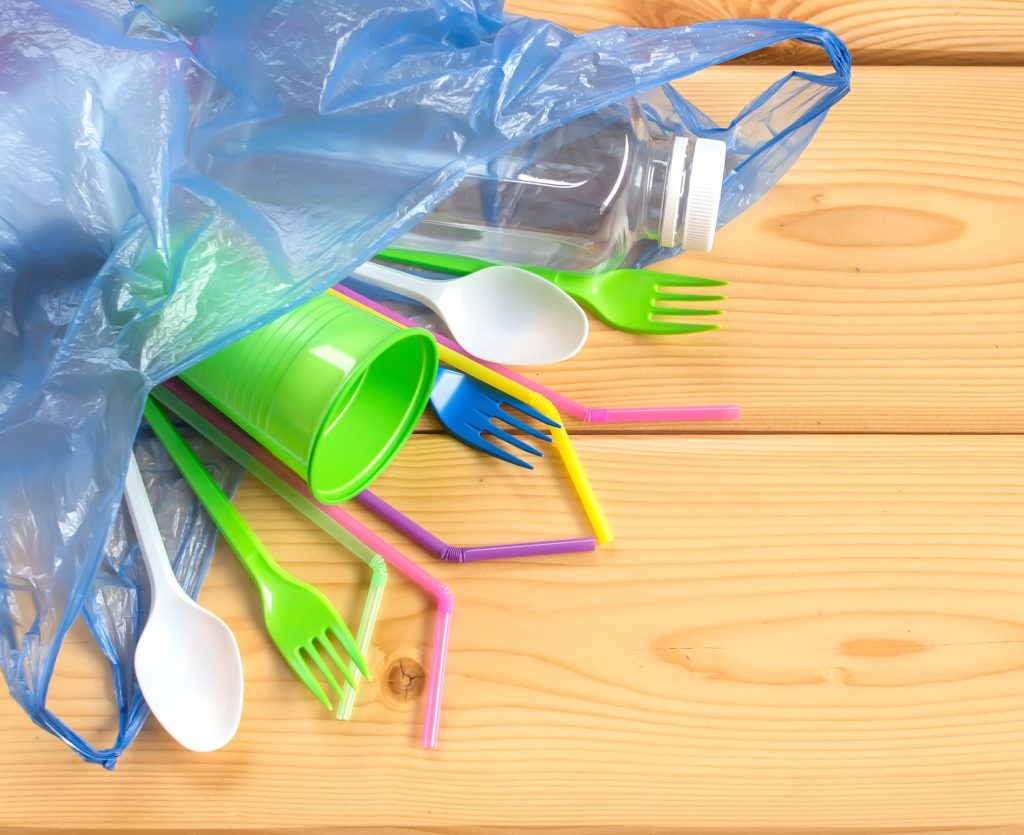The Government has released the “regulating single-use plastics in Bermuda” policy paper for consultation, with the 57-page document providing a broad overview of the proposal.
Earlier this week, Minister of Home Affairs Walter Roban said that the “Government has committed to eliminating single-use plastics by 2022″ and “of 1st September this year, the policy paper will be available to review for public consultation by visiting forum.gov.bm.”
The document said, “Solutions to the problem of SUPs are not the sole responsibility of government. All stakeholders, including the third sector, the private sector and every resident must play a part in the effort to reduce our dependency on SUPs.
“To that end more public education is required to highlight the issues. The third sector has already been notably pushing the issue and highlighting the dangers of SUPs to the environment and proposing solutions. However, it is only the government which has the power to enact concrete measures towards plastic reduction through policy, education, legislation and enforcement.”
It also noted, “The following items all should be considered under such an importation ban, as some alternative non-plastic products exist, lessening the impact on vendors and consumers. It is recognised that this list is not exhaustive, but rather should be considered a minimum baseline from which to start:
- Styrofoam products. These include food service containers (e.g. clamshell and hinge containers, bowls, plates, hot and cold beverage cups and egg cartons).
- Plastic utensils. These include cups, spoons, forks and knives, lids, straws and stirrers.
- Plastic bags. Careful consideration needs to be given to the definition and scope included.
- Plastic trays. These includes trays for fruit, meat and vegetables.
- Plastic water bottles and other plastic beverage bottles. Exceptions can be made for large plastic water bottles that are returned and refilled.
- Plastic single-serving food sachets such as mayonnaise and ketchup sachets.
- Plastic-lined paper cups and food containers.
- Products containing micro-plastics (e.g. industrial abrasives used in sandblasting, household abrasives that contains micro-beads and facial scrubs and other cosmetics that contains micro-beads).
- Plastic single-use beverage pods (e.g. coffee and tea pods).
- Plastic-stemmed cotton buds.
- Oxo-degradable plastic
- ‘Biodegradable’ plastic
The 57 page Policy Document follows below [PDF here]:

